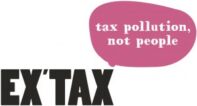Circular Entrepreneurs on the Taxshift: Towards a Level Playing Field
In Dutch: Circulair ondernemers over de taxshift: op weg naar een gelijk speelveld’
This study, commissioned by the Dutch Ministry of Infrastructure and Water Management, gathers insights into financial incentives that hinder and promote the circular economy. For this particular study, Ex’tax has interviewed 10 circular entrepreneurs, gathering real-life practical examples of how the tax mix impacts their opportunities to develop and scale up circular business models.
A key theme throughout the interviews with entrepreneurs is that they face high costs for the deployment and guidance of employees. Nine out of ten even consider high labour costs in the Netherlands to be one of the main barriers to scaling up their circular business models.
Another common theme throughout this study is that entrepreneurs face an uneven playing field because linear competitors do not pay for the pollution, waste, emissions, and resource depletion they cause. In the words of one interviewee: “competitors who make a mess and don’t clean up anything.” According to the entrepreneurs, the challenge is to take measures to correct this uneven playing field, based on the “polluter pays” principle. This makes circular business models more competitive and gives them a fairer chance. Previous research by The Ex’tax Project already revealed that there are more than one hundred potential tax bases—which offer even more policy options—to create a level playing field (the ‘Tax Shift Toolkit’).
From this palette, the following recommendations emerged most strongly from the interviews:
- Reduce the burden on labour for employers and employees;
- Expand tax support for labour-intensive circular investments;
- Increase taxes on waste;
- Tax non-energy use of fossil fuels (abolish fossil fuel subsidies);
- Tax the external costs of international shipping and freight aviation (abolish fossil fuel subsidies);
- Increase the water tax for large consumers;
- Tax CO2 emissions more heavily, for example, through the energy tax on natural gas for large consumers;
- Expand CBAM to fossil plastics, textiles, copper, and other materials;
- The Netherlands must strongly advocate for a robust European approach to circular financial incentives;
- Consider external costs in tax policy.
The results will inform the new National Circular Economy Program and further supports the government’s ambition to achieve a simpler and more efficient tax system.
The full report can be downloaded on the Dutch government website here.
The accompanying video can be viewed here.
[in Dutch]:
In dit verkennende onderzoek zijn in opdracht van het ministerie van Infrastructuur en Waterstaat aan de hand van voorbeelden uit de praktijk inzichten verzameld over financiële prikkels die de circulaire economie tegenhouden, dan wel bevorderen.
Een belangrijke rode draad door de interviews met de ondernemers is dat zij aanlopen tegen hoge kosten van inzet en begeleiding van werknemers. Negen van de tien ervaart de hoge arbeidskosten in Nederland zelfs als één van de belangrijkste barrières voor het opschalen van hun circulaire verdienmodellen.
Een andere rode draad in dit onderzoek is dat ondernemers te maken hebben met een ongelijk speelveld, omdat lineaire concurrenten niet betalen voor de door hen veroorzaakte vervuiling, afval, emissies en uitputting van grondstoffen. In de woorden van één van de geïnterviewden: “concurrenten die troep maken en niks opruimen”. De vraag is om met maatregelen het ongelijke speelveld te corrigeren, vanuit het principe ‘de vervuiler betaalt’. Dit maakt circulaire verdienmodellen concurrerender en geeft ze een eerlijker kans. Op grondslag-erosie kan worden geanticipeerd door grondslagverbreding en verhoging van tarieven. Uit eerder onderzoek van The Ex’tax Project kwam al naar voren dat er meer dan honderd potentiële belastinggrondslagen zijn – die nog meer beleidsopties geven – om een gelijk speelveld te realiseren (de ‘Taxshift Toolkit’).
Uit dit palet kwamen de volgende aanbevelingen in de interviews het krachtigst naar voren:
- Verlaag de lasten op arbeid voor werkgevers en werknemers;
- Verruim fiscale ondersteuning voor arbeidsintensieve circulaire investeringen;
- Verhoog de belastingen op afval;
- Belast niet-energetisch gebruik van fossiele brandstoffen (afschaffen fossiele subsidie);
- Belast de externe kosten van internationale scheepvaart en vrachtluchtvaart (afschaffen fossiele subsidie);
- Verhoog de belasting op water voor grootverbruikers;
- Belast CO2-uitstoot meer, bijvoorbeeld via de energiebelasting op aardgas voor grootverbruikers;
- Breid CBAM uit naar fossiel plastic, textiel, koper en andere materialen;
- Nederland moet zich hard maken voor een krachtige Europese aanpak van circulaire financiële prikkels;
- Weeg externe kosten mee bij fiscaal beleid.
De resultaten geven input aan het nieuwe Nationaal Programma Circulaire Economie. Het onderzoek ondersteunt de overheid verder in haar ambitie om te komen tot een eenvoudiger en beter belastingstelsel.
